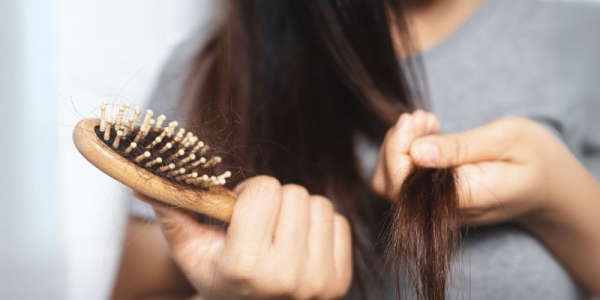Does Stress Related Hair Loss = Surgery?

26 May 2016

Hair Experts @ AHS

Stress related hair loss is seen as something you can't do anything about, but this is not in fact the case. Hair loss is one of those afflictions that often beg the question - which came first, the chicken or the egg? Or more accurately, is your hair falling out...
Stress related hair loss is seen as something you can’t do anything about, but this is not in fact the case.
Hair loss is one of those afflictions that often beg the question – which came first, the chicken or the egg? Or more accurately, is your hair falling out because you are anxious or are you anxious about your hair falling out? Think about it too long and you’ll eventually tangle yourself in the whole ‘are you anxious because your hair is falling because you are anxious’-debacle.The short of the long is that anxiety and hair loss shares a fairly complicated relationship that can only be properly understood if you have a grasp of the underlying biology that underpins stress related hair loss.
First off, the most important thing to realise is that stress and anxiety itself is not directly to blame for hair loss. Much like hair fall is related to, but not a direct result of, cancer (but rather the unwanted side-effect of a course of chemotherapy), stress-related hair fall cannot be ascribed to the emotional affliction itself, but rather to a number of conditions that is the result thereof.
These conditions include (in order of the likelihood of occurrence in the general population):
1. Telogen Effluvium
Telogen effluvium (TE) is probably the second most common form of hair loss dermatologists diagnose in their patients. It appears as a diffuse thinning of hair on the scalp, which may not be even all over. It can be a bit more severe in some areas of the scalp than others. Most often, the hair on top of the scalp thins more than it does at the sides and back of the scalp. There is usually no hair line recession, except in a few rare chronic cases.Sufferers of TE never completely lose all their scalp hair, but the hair can be noticeably thin in severe cases. The shed hairs are typically telogen hairs, which can be recognized by a small bulb of keratin on the root end. Whether the keratinized lump is pigmented or un-pigmented makes no difference; the hair fibres are still typical telogen hairs.
2. Alopecia Areata
Alopecia areata is an autoimmune disease that presents as spot baldness and is also known as ‘Davey Kirts syndrome’. It is characterised by hair loss from some or all areas of the body, but most often from the scalp and can be attributed to the body’s sudden inability to recognise its own cells and subsequent destruction of its own tissue.The typical initial symptoms of alopecia areata include small bald patches where the underlying skin appears un-scarred and looks superficially normal. These patches can take many shapes, but are normally round or oval. The affliction most often affects the scalp and beard, but may occur on any part of the body that is covered with hair. Different areas of the skin may exhibit hair loss and regrowth at the same time. The disease may also go into remission for a time, or may be permanent.
3. Trichotillomania
While the previous two disorders are physical in nature, Trichotillomania is an emotional affliction that causes the sufferer to have the uncontrollable urge to pull out their own hair. Sufferers vary in age and are known to pull out their body hair at the root from places like the scalp, eyebrows, lashes and pubic region. It presents in various stages of severity across genders, age groups and creeds – some people pull out handfuls of hair at a time, while others pull out one strand at a time and others even ingest the hair once removed.We started this article by asking the question, does stress-related Hair loss necessarily mean that you have to get surgery. The short answer is not necessarily. Depending on the severity and root cause of your hair fall, there are a number of less invasive hair restoration techniques that can be applied before you have to submit to surgery.
The first step in the process to identifying your options is to ascertain why your hair is falling. At Advanced Hair Studio UAE we offer Advanced Hair Check, a scientific approach using advanced technology and state-of-the-art instruments, to answer questions related to hair loss, thinning and overall scalp condition. Our experienced and thoroughly trained hair loss consultants examine all aspects of your hair and scalp condition in order to recommend the most suitable procedure or combination of procedures to suit your age, face, personality and expectations to give you a head full of hair. This approach ensures that we establish the root cause of your hair loss before you make any decisions regarding treatment.
Would you like to learn more about hair loss causes, solutions and treatments? Keep an eye on the Advanced Hair Studio UAE blog to stay abreast of the latest developments in the hair restoration field. We have a team of experts standing by to keep you in the know.
Top Categories
Stay Updated
Subscribe to our email newsletter for helpful tips and valuable resourses
Be an influencer
Join forces with Advanced Hair Studio! Explore exciting collaboration opportunities tailored for influencers. Let's redefine haircare together.
Connect now






